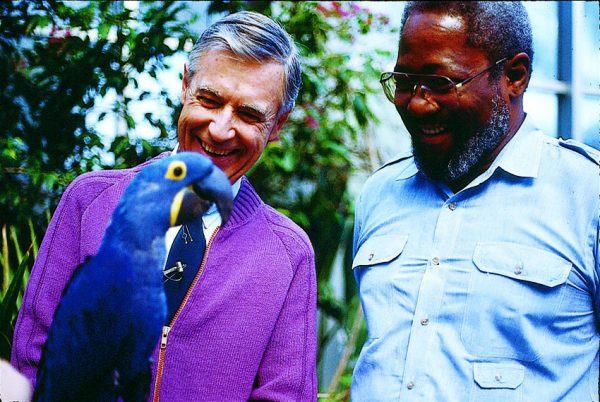Mister Rogers took us by the hand – and together we learned about ourselves, about others and about the world around us.
Just like children, Mister Rogers was fascinated with everything, from the things around us that we take for granted to the field trips at an art museum, an airport, an aviary. His curiosity was childlike, not childish. He had a unique ability to remember what it was like to be a child and to see things through their eyes. What is this? What can it do? What if? Why? Those are the kinds of questions Mister Rogers asked, inspiring us to wonder and giving us the courage to ask.

Children think of adults as all-knowing and all-wise. They think adults know all the answers. Mister Rogers helped children, and adults too, know that we don’t need to have answers for every question. Just applauding and listening to a child’s questions and ideas can be all the encouragement he or she needs.
“Dear Mister Rogers,
While shopping with my mommy one day I asked her if they shot those chickens we were going to buy. She said she was sure they didn’t. So I asked her, ‘How does the farmer get them to lie down?’ Mommy said she didn’t know, but maybe Mister Rogers knew the answer. Do you?”
I watch your show all the time. It helps me learn life.
How many people are willing to let others see their mistakes? On television most of the time they’re edited out. Not on Mister Rogers’ Neighborhood!
Mister Rogers was willing to put himself in situations where he was struggling to learn something, like hand motions to a song, Chinese calligraphy, juggling, even break dancing. Children could see that we don’t learn most things smoothly or magically. It takes work, often hard work, practice, persistence and even mistakes. That’s true for children and for adults.
Through Mister Rogers’ Neighborhood, Fred Rogers wanted to help children develop the tools they would need for learning. What are some of those essential tools: a sense of self-worth, a sense of trust, curiosity, the capacity to listen and the ability to sustain attention. Mister Rogers created a place for children to cultivate those tools through the program’s pace and production, his honesty and authenticity, his rituals and routines. Those tools are not only tools for school, they’re tools for learning all through life.
Your rule of life made as much sense to me at age five as it does to me now that I’m 37. Discover something new. Listen to people’s stories. Sing. Take time. Be generous. Feed the fish.